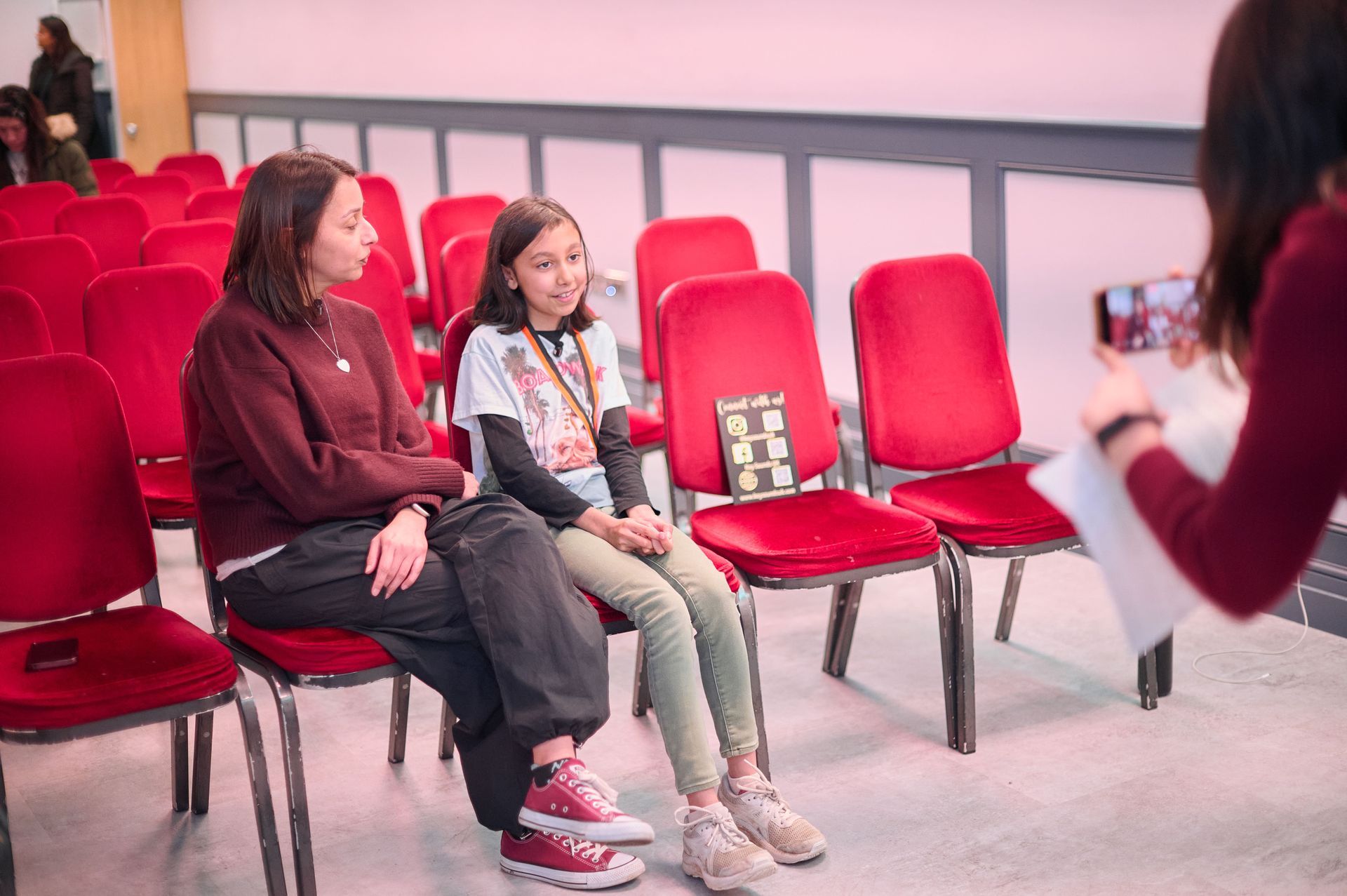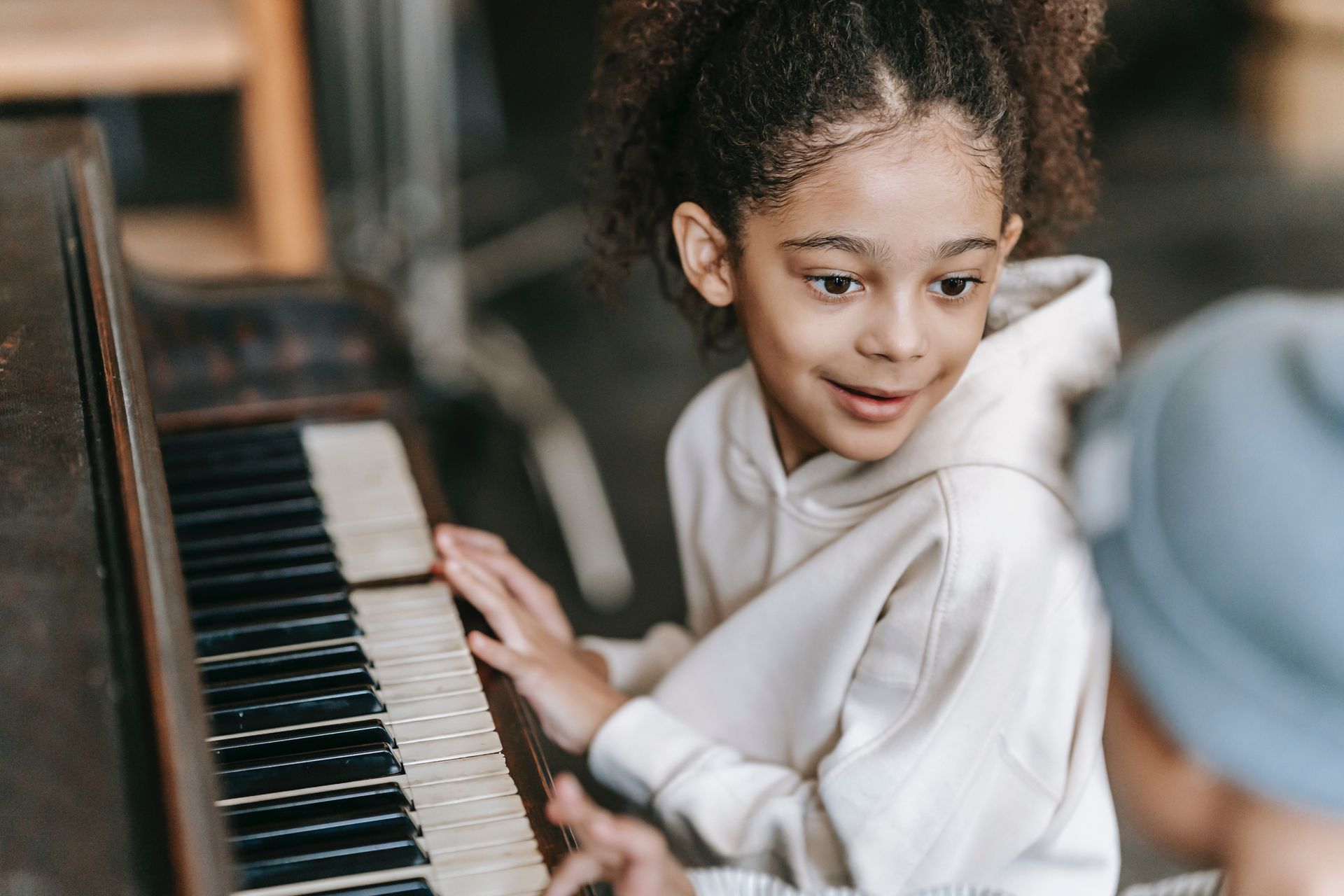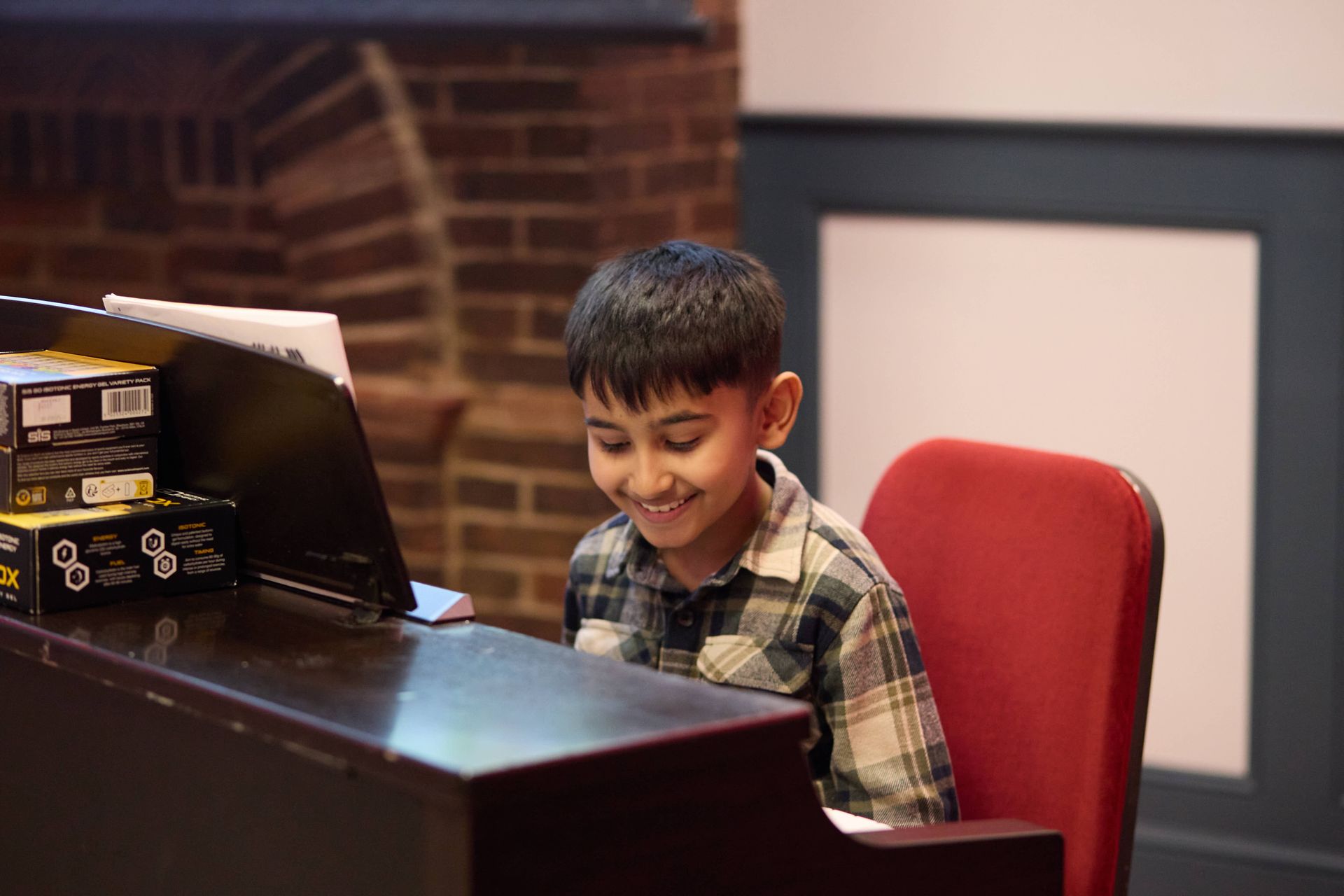A Parent's Guide to Supporting Your Child's Piano Journey
As parents, we're familiar with supporting our children through their school subjects, but piano lessons operate differently from traditional classroom learning. Understanding these differences can dramatically improve your child's progress and enjoyment of their musical journey.
Why Piano Lessons Differ from School Lessons
Individual Pace vs. Curriculum Deadlines
In school, students must keep pace with a set curriculum, often moving on before fully mastering concepts. Piano lessons at Key Sounds UK work differently:
- Individual Progress: Each student moves at their own pace, ensuring solid foundations before advancing
- Mastery-Based Learning: We don't move to the next piece until current skills are secure
- Flexible Timing: Unlike school terms, musical progress doesn't follow rigid timelines
Active vs. Passive Learning
School often involves absorbing information, while piano learning is inherently active:
- Physical Skill Development: Piano requires muscle memory and coordination that develops gradually
- Creative Expression: Students learn to interpret and express music, not just reproduce it
- Problem-Solving: Each new piece presents unique challenges to overcome
How Key Sounds UK's Approach Supports Family Learning
Goal Setting Every Term
Unlike the broad curriculum objectives in school, we set specific, achievable goals each term:
- Collaborative Planning: Parents, students, and teachers work together to set meaningful targets
Multiple Learning Pathways
We recognise that children learn differently, offering various approaches:
- Visual Learners: Sheet music, colour-coding, and visual aids
- Auditory Learners: Playing by ear, rhythm exercises, and listening activities
- Kinesthetic Learners: Physical movement, touch-based learning, and hands-on activities
Practical Ways Parents Can Support Piano Practice
Creating the Right Environment
Unlike homework, piano practice needs special consideration:
- Dedicated Space: Set up a consistent practice area free from distractions
- Scheduled Time: Regular, shorter sessions are more effective than long, infrequent ones
- Family Respect: Ensure other family members understand and respect practice time
Understanding Practice vs. Performance
School homework aims for completion; piano practice aims for improvement:
- Quality Over Quantity: 15 minutes of focused practice beats 30 minutes of distracted playing
- Mistake-Friendly Zone: Encourage experimentation and learning from errors
- Progress Recognition: Celebrate small improvements rather than demanding perfection
Communication with Your Teacher
School reports come termly; piano progress needs ongoing dialogue:
- Regular Updates: Stay informed about your child's progress and challenges
- Home Practice Guidance: Understand what to listen for and how to help
- Goal Alignment: Ensure home support aligns with lesson objectives
The Key Sounds UK Family Support System
Parent Resources
We provide parents with tools to support their child's learning:
- Progress Tracking: Regular updates on achievements and areas for development
Flexible Learning Options
Our multiple lesson formats support different family needs:
- Home Visits: Eliminates travel stress and allows parents to observe lessons
- Online Lessons: Convenient for busy schedules while maintaining quality instruction
- Studio Lessons: Traditional setting for focused learning
- Group Classes: Social learning opportunities that build confidence
Term-by-Term Adaptation
We adapt our approach based on your child's changing needs:
- Academic Pressure Periods: Reducing intensity during exam times or busy school periods
- Growth Spurts: Adjusting expectations during rapid physical development phases
- Interest Evolution: Incorporating your child's current musical interests and preferences
Building Intrinsic Motivation
Unlike school subjects where external motivation often suffices, piano learning thrives on internal drive:
- Choice Integration: Allowing students to choose some of their repertoire
- Personal Expression: Encouraging individual interpretation of pieces
- Real-World Application: Connecting lessons to students' musical interests and goals
The Long-Term Vision
Help your child understand that piano learning is different from school subjects:
- Lifelong Skill: Piano provides ongoing joy and stress relief throughout life
- Creative Outlet: Music offers emotional expression that academic subjects may not provide
- Social Opportunities: Musical skills open doors to performance groups and social connections
When Things Get Challenging
Recognising Normal Plateaus
Piano learning involves natural ups and downs that differ from academic progress:
- Technical Challenges: Some pieces require weeks or months to master
- Motivation Dips: Interest naturally fluctuates, and this is completely normal
- Physical Development: Growing hands and changing coordination affect playing
Working with Key Sounds UK Teachers
Our experienced teachers understand these challenges:
- Plateau Navigation: We know how to work through difficult periods
- Motivation Renewal: Fresh approaches and new repertoire can reignite interest
- Family Support: We work with parents to maintain encouragement without pressure
The Rewards: Why This Approach Works
When parents understand and support the unique nature of piano learning, the results are remarkable:
- Deeper Learning: Students develop genuine musical understanding, not just mechanical playing
- Increased Confidence: Success in music builds confidence in other areas of life
- Family Bonding: Shared musical experiences create lasting family memories
- Stress Relief: Piano becomes a positive outlet for the whole family
At Key Sounds UK, we're not just teaching your child to play piano, we're partnering with your family to create a lifelong love of music. By understanding how piano learning differs from school subjects and supporting your child appropriately, you're setting them up for musical success that will last a lifetime.
Get in touch to find out more information here:
www.keysoundsuk.com/contact



